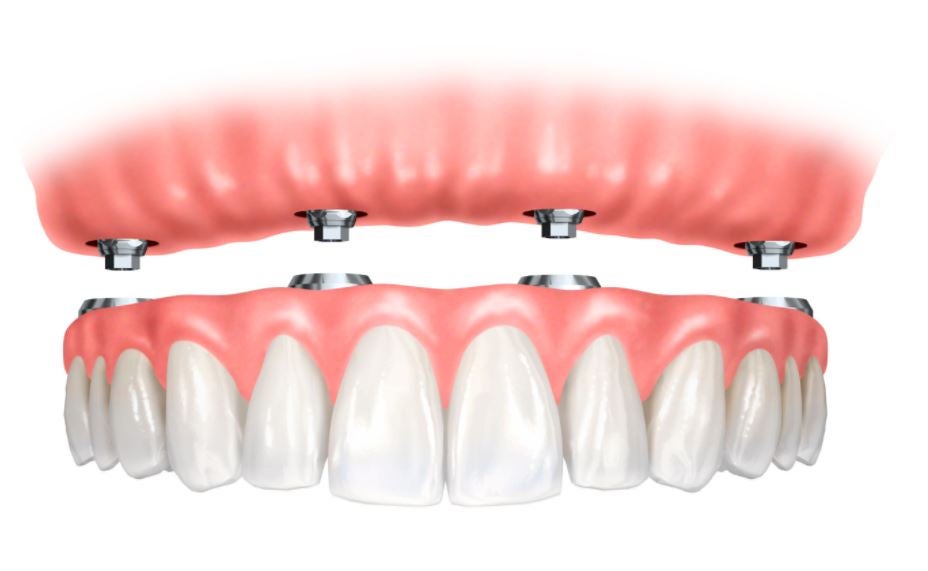What Does Dental Sense Mean?
The Buzz on Dental Sense
Table of ContentsSome Ideas on Dental Sense You Should KnowHow Dental Sense can Save You Time, Stress, and Money.How Dental Sense can Save You Time, Stress, and Money.The Dental Sense Statements
are clinical devices operatively dental implanted right into the jaw to restore a person's capability to eat or their look. They provide assistance for synthetic (fake) teeth, such as crowns, bridges, or dentures. When a tooth is lost as a result of injury or illness, a person can experience issues such as quick bone loss, malfunctioning speech, or adjustments to eating patterns that lead to pain.Dental dental implant systems include a dental implant body and oral implant joint and might additionally include an abutment addiction screw. Same day dental implants. The oral implant body is surgically put in the jawbone instead of the tooth's origin. The dental implant abutment is normally connected to the dental implant body by the joint fixation screw and extends with gums into the mouth to sustain the attached artificial teeth
(https://us.enrollbusiness.com/BusinessProfile/7028852/Dental%20Sense)Structure of The Dental Implant System selecting oral implants, speak with your oral provider regarding the prospective benefits and threats, and whether you are a prospect for the procedure. Things to consider: Your general wellness is a crucial consider identifying whether you are a good prospect for dental implants, for how long it will certainly require to recover, and for how long the dental implant may stay in area.
Cigarette smoking may influence the recovery process and reduce the lasting success of the implant. The healing process for the implant body might take several months or longer, during which time you typically have a momentary abutment instead of the tooth. the oral implant procedure: Carefully adhere to the dental hygiene instructions offered to you by your oral copyright.
The Of Dental Sense
Implant failing can result in the requirement for one more surgery to take care of or change the implant system. Restores the ability to eat Recovers cosmetic appearance Assists maintain the jawbone from diminishing because of bone loss Protects the health of the bordering bone and gum tissues Assists maintain surrounding (close-by) teeth stable Enhances lifestyle Damage to surrounding natural teeth during implant placement Injury to the surrounding tissues during surgery, such as sinus opening Injury throughout surgical procedure (as an example, crack of bordering jawbone) Insufficient feature, such as seeming like the teeth do not attack with each other normally A sensation that the tooth hangs or twisting in area resulting from a joint screw loosening Implant body failure (looseness of the dental implant body) because of systemic infection, which might be most likely in clients with unchecked diabetes mellitus because of neighborhood infection in bone and periodontals supporting the implant body because of postponed healing, which may be much more most likely in individuals that smoke Problem cleaning up the gums around the implant, resulting in inadequate dental health Without treatment periodontal disease Post-surgical tingling due to nerve impingement or damages Constantly alert healthcare companies and imaging professionals that you have oral implants before any sites type of magnetic vibration imaging (MRI) or x-ray treatments.
FDA is not mindful of any negative occasions reported for MRI or x-ray procedures with dental implants. Oral implants systems are commonly made of products that adhere to worldwide agreement criteria of the International Company for Standardization (ISO) or ASTM International. These criteria have information of what makes a risk-free product.

A dental implant is a framework that changes a missing out on tooth. With screw-like tools, the surgeon inserts a dental implant into the jawbone, and it acts as a support for a synthetic tooth, called a crown.
Some Ideas on Dental Sense You Need To Know
Some people are not eligible for oral implant surgery. It is for oral surgeons to operate on people with: severe illnessuncontrollable metabolic diseasebone or soft tissue illness or infectionIf these concerns are solved, a person can have the surgery. In, dental cosmetic surgeons refrain from operating on people with: If people with any of the above go through oral implant surgical treatment, there is a greater danger of the dental implant falling short.

Dental implant surgical treatment is an individualized process. It's not the same for every person. The adhering to offers a basic summary of what you can anticipate your dentist, oral cosmetic surgeon, periodontist or prosthodontist to do: Put the dental implant operatively. Offer you time to heal. Attach the article and final crown, bridge or denture.
Next, your surgeon will meticulously place the dental implant into your jaw. Lastly, your surgeon will reposition your gums and shut the laceration with stitches. If your dental implant is near the front of your mouth, your dental professional will make a short-lived tooth for you to use until you recover. By doing this, you won't have a gap in your smile while you recover.
Fascination About Dental Sense
Your service provider can inform you what to anticipate in your circumstance. Throughout the healing phase, your jawbone ought to fuse to the oral implant. This procedure, called osseointegration, is essential for security and lasting success. This process can take anywhere from three to 9 months. In some cases, it may take much longer.
Once your dental implant heals, your dental professional can affix the joint (little adapter message) and your last remediation (crown, bridge or denture). This generally takes about one hour to finish and might call for a second minor surgical treatment. You shouldn't really feel any discomfort during your dental implant procedure since your provider will make use of medication to numb your periodontals.